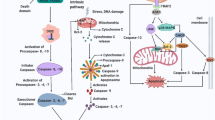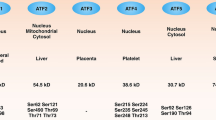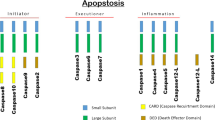Abstract
FADD is an important proapoptotic adaptor in death receptor-induced apoptosis. Recently, FADD has been found to participate in a variety of non-apoptotic processes, such as development, cell cycle progression and survival. Its non-apoptotic activities were regulated by the phosphorylated status of the serine residue located at the C-terminal region, a domain distinct from the proapoptotic function related DED and DD domains. However, due to the difficulties in expression and crystallization of natural FADD, by far the molecular structures of all FADD variants did not contain the C-terminal region. To elucidate the structure-function relationship of C-terminal region, we need to obtain an FADD variant that containing C-terminal region. In this study, mouse FADD (80-205) containing DD domain and C-terminal region, designated as C-FADD, was expressed in E. coli with His-tag at the N-terminus and purified by Ni2+ affinity chromatography. The purified protein existed as a homogenous monomer in glutaraldehyde cross-linking analysis and exhibited a typical α-helix spectrum in CD (circular dichroism) assay. In vitro His-tag pull-down assay demonstrated that the purified C-FADD possessed the CK Iα-binding activity which was important for its non-apoptotic function.
Similar content being viewed by others
Author information
Authors and Affiliations
Corresponding author
Rights and permissions
About this article
Cite this article
Chen, Y., Ma, D., Huang, QL. et al. Expression, Purification and Characterization of C-FADD. Cell Mol Immunol 6, 295–301 (2009). https://doi.org/10.1038/cmi.2009.39
Received:
Accepted:
Issue Date:
DOI: https://doi.org/10.1038/cmi.2009.39
- Springer Nature Limited
Keywords
This article is cited by
-
β1,4-galactosyltransferase-I in synovial tissue of collagen-induced rat model of rheumatoid arthritis
Clinical and Experimental Medicine (2011)




